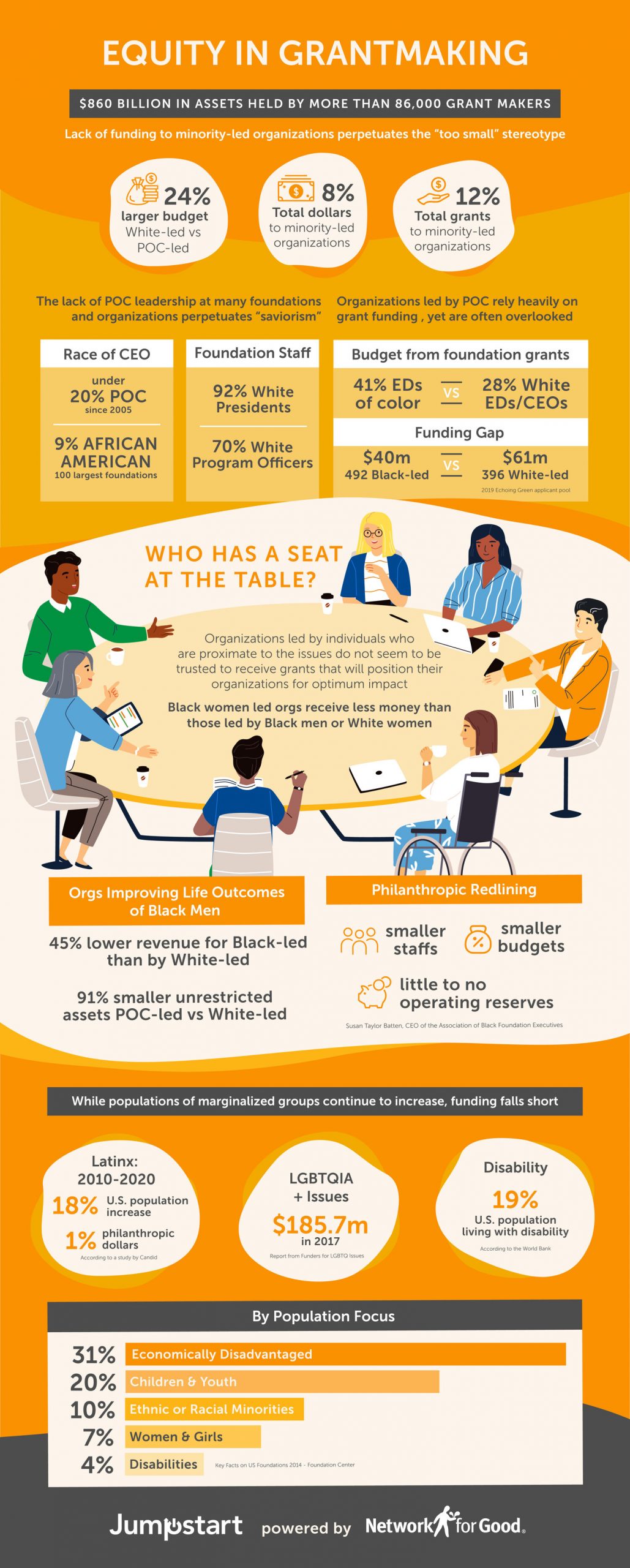Inequity in Funding
Beginning in 2003, Sharon Walker McCall began providing resource development and fund-raising consultancy services to nonprofit organizations that were founded or managed by African Americans. Immediately, it became apparent to McCall that these nonprofit organizations were not being funded on par with organizations, whose founders, board of directors or executives were white. Even more surprisingly, organizations –whose founders, board of directors or executives who were white and served predominantly African American clients — received more funding than Black-led organizations that provided services to the same African American clientele.
Reliance on Small Grants
Also, many Black-led organizations depended heavily upon small grants, and did not have fund-raising programs that incorporated other fund-raising strategies, such as individual giving, foundation and corporate giving, and major giving. McCall submitted proposals on behalf of Black-led organizations, and many foundations made a special effort to call her directly and explain why Black-led organizations were not selected for funding. Foundation staff explained that proposals were well written; however, foundation’s funding was limited.
Decision Makers Don’t Know Anyone at Black-led Organizations
So, McCall contacted African American foundation staffs in order to understand awarding and selection process and many explained that Black-led organizations did not have anyone, who had a seat at the table and could advocate on their behalf; or have decision makers, who served in a voluntary capacity on foundation funding committees and were aware of organization’s executive staff or board members of Black-led organizations. Many decision makers were prominent White business owners or executives. Of course, one way to solve the problem would be to recruit White business owners or executives to serve on boards of Black-led organizations. Living in the south, I knew building a snowman on a hot murky day in August would be more achievable than recruiting someone White to serve on a board of an organization that may be located in a low-income area of the city or known as being a Black-led organization.
According to an article, Who Has a Seat at the Table?, that was published on October 15, 2020 by Network for Good, “. . . organizations led by People of Color rely more heavily on grant funding while those with White leadership have larger budgets and receive a much greater portion of the total grants and grant dollars awarded. Even, for example, within organizations whose mission is to improve the lives of Black men, those led by White individuals receive more funding than organizations with Black leadership. Even when more Black leaders apply for and receive funding, the total funding dollars are considerably less than those received by White leaders. And organizations led by Black women receive the least.” The following infographic of Equity in Grantmaking, which was developed by Network for Good summarizes funding inequity:

